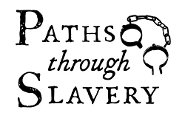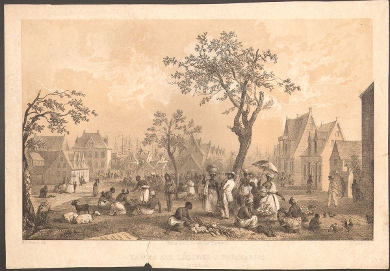Research project
Paths through slavery: urban slave agency and empowerment in Suriname, 1700-1863
How did slaves in the eighteenth century manage to empower themselves and their kin, and why did this become all the more difficult in the nineteenth century?
- Contact
- Karwan Fatah-Black
- Funding
-
 NWO Veni
NWO Veni

While history is full of communities overcoming hardship and marginalization without heroic episodes of mass resistance, scholars know very little of such success stories. The enslaved population of Paramaribo holds many good examples of bere (kinship groups) finding ways to improve their lives. At least, in the 18th century. After roughly 1830 it seems more difficult for those who were enslaved to improve their condition. My project aims to highlight urban slavery and slave empowerment in Suriname, and show what new obstacles were encountered during the last decades before Abolition in 1863.
 The debates on empowerment under slavery tend to focus on plantation agriculture and resistance. These studies suffer from what Brana-Shute in 1985 called “agricultural myopia.”
The debates on empowerment under slavery tend to focus on plantation agriculture and resistance. These studies suffer from what Brana-Shute in 1985 called “agricultural myopia.”
Despite the brutal context of slavery, men and women could carve out modest social and economic niches, and some even managed to become part of the colonial economic and governmental elite. Paradoxically, changes in the system of slavery came to block these paths once the Abolition appeared on the horizon.

This project will establish for both the 18th and 19th century slave system which options were available to slaves and freedmen and what factors determined their possibilities and the choices they made. Unique and rarely studied archival material is available to bring these urban paths to emancipation and empowerment to the fore.
Historians increasingly suggest that the gendered and the urban context of slave societies influenced paths to emancipation. Especially the records of the law courts, a crucial urban institution, offer important insights into urban slavery. Different than might be expected, the voices and lives of Paramaribo’s slaves and freedmen are not absent from these records. I can therefore shed new light on the empowerment strategies of slaves and freedmen in the city.
